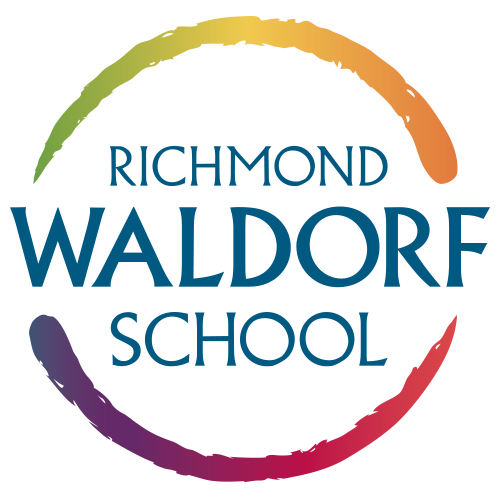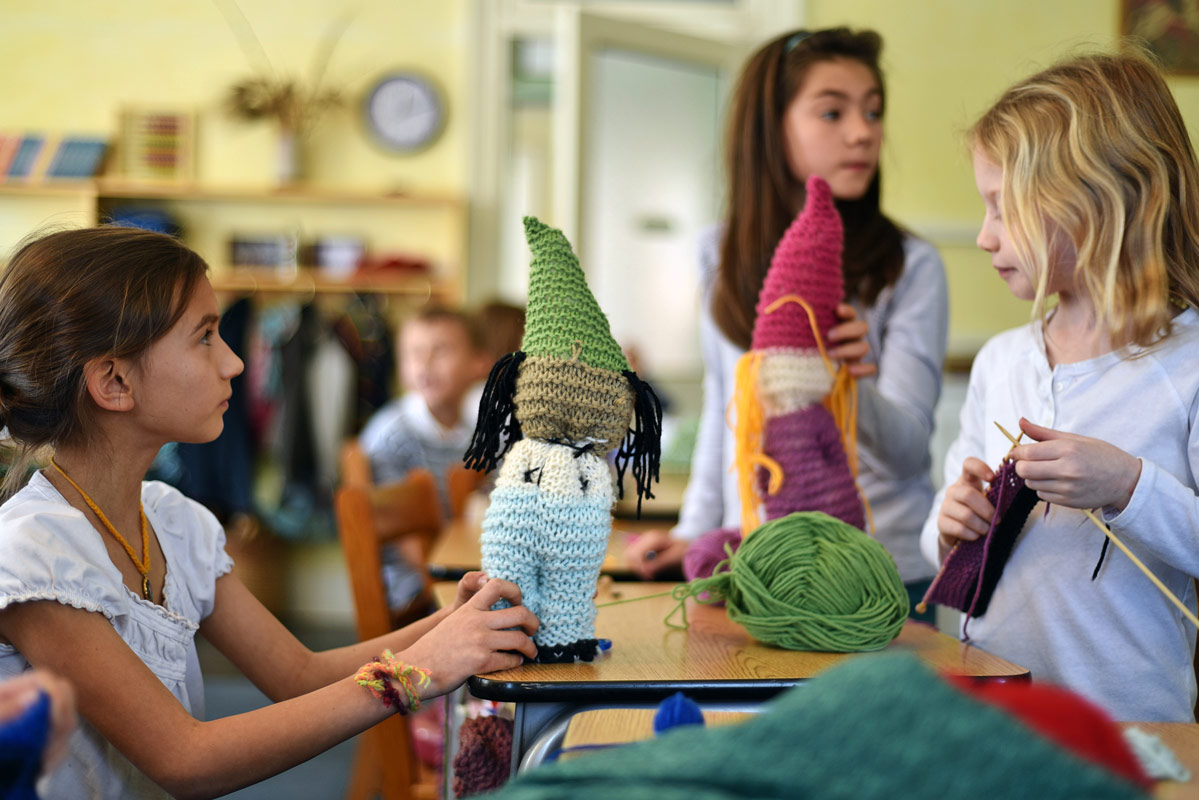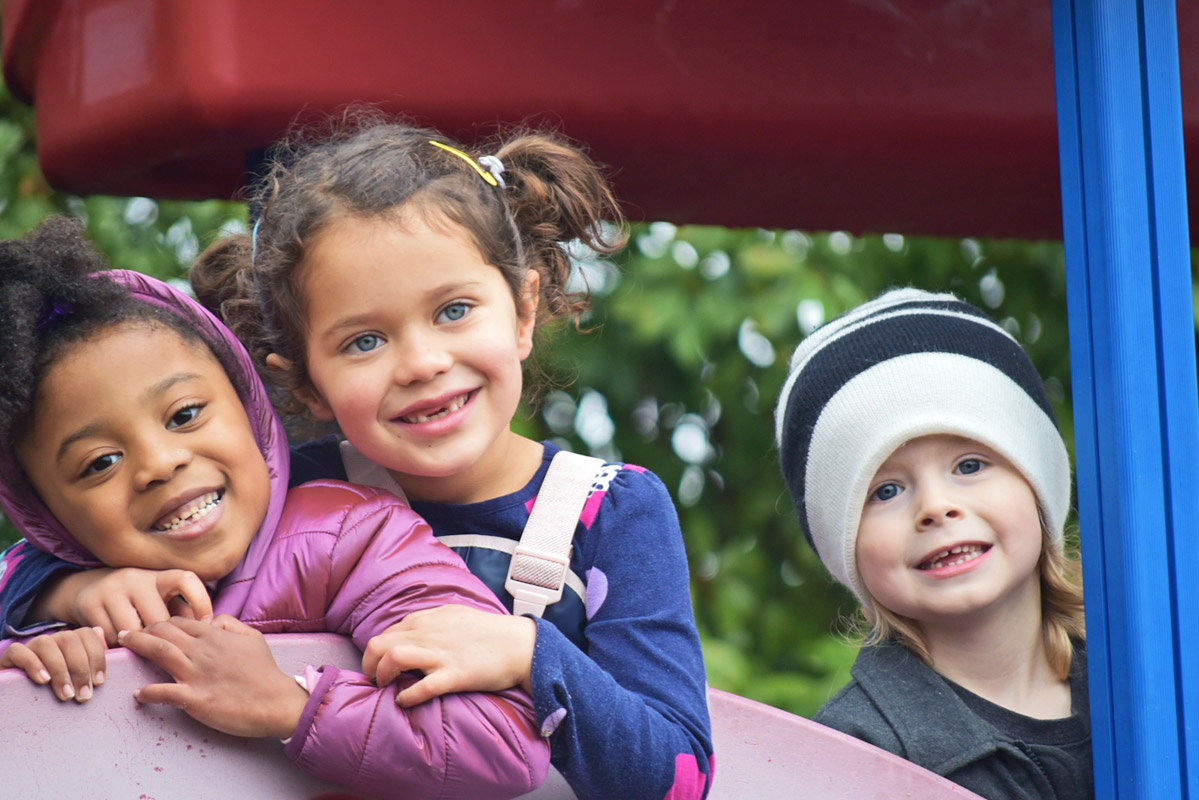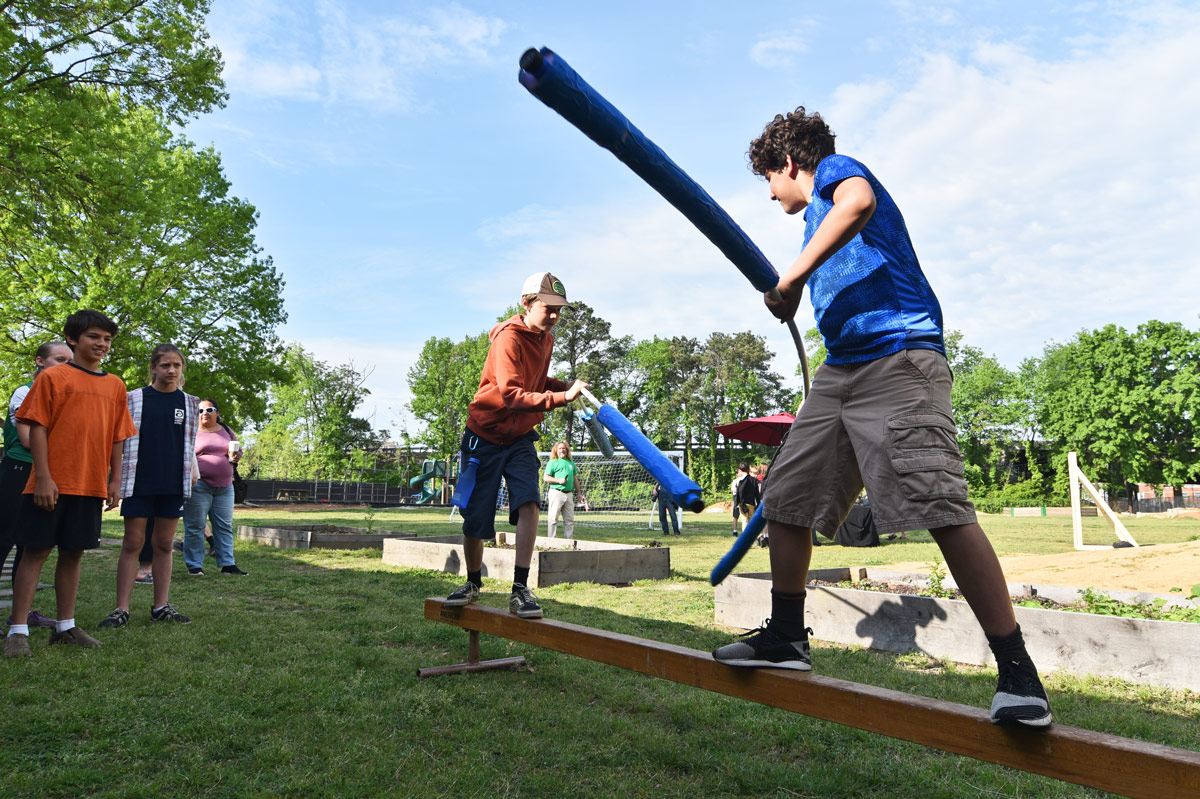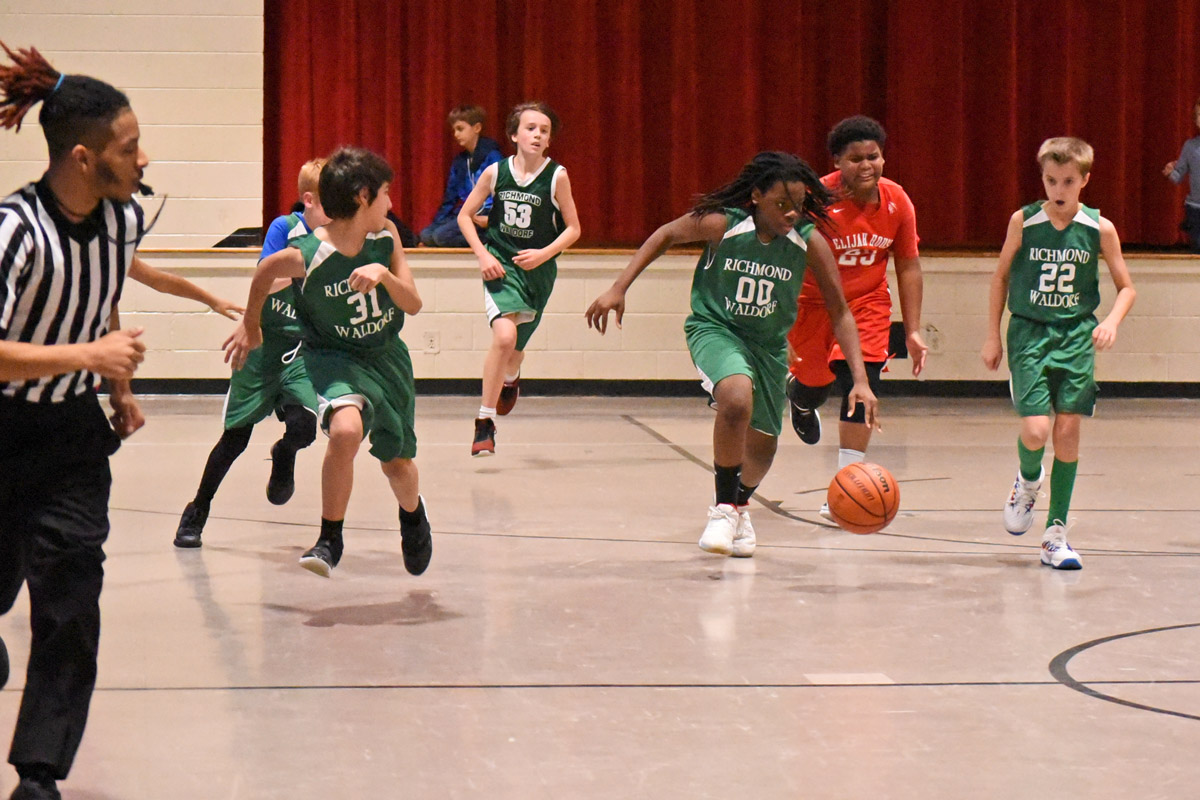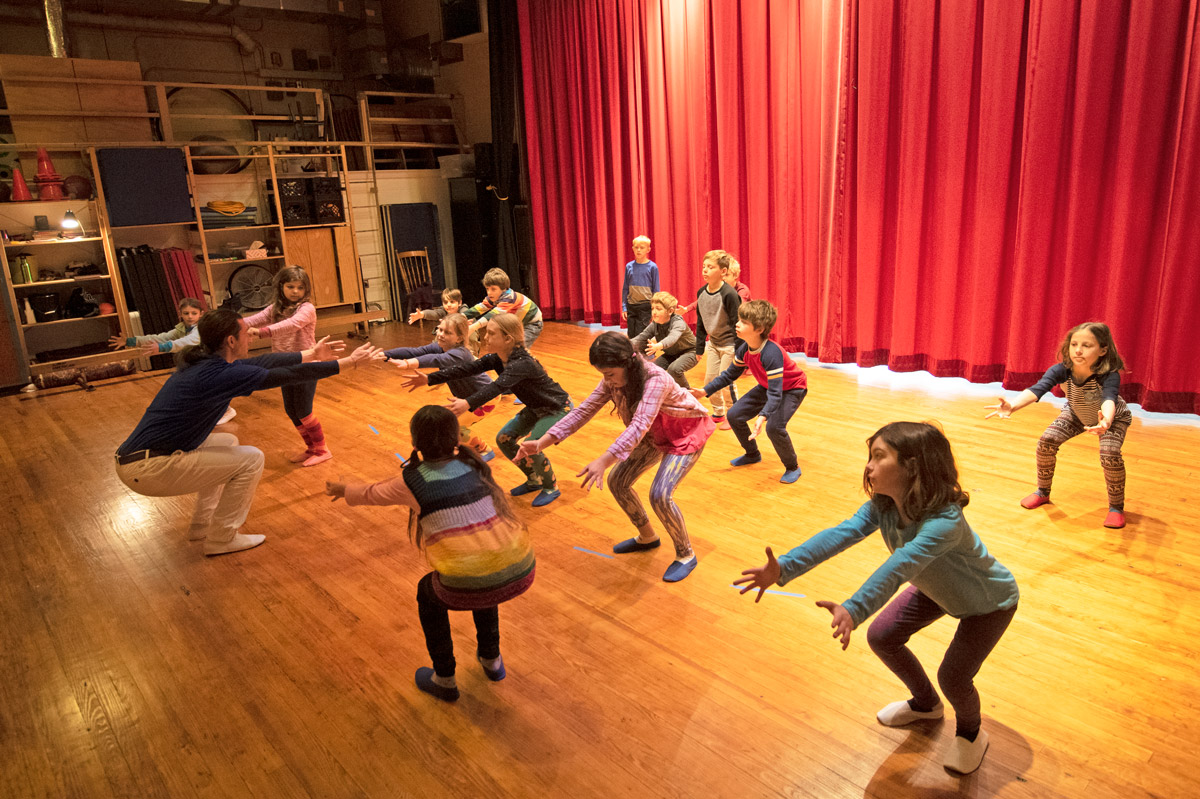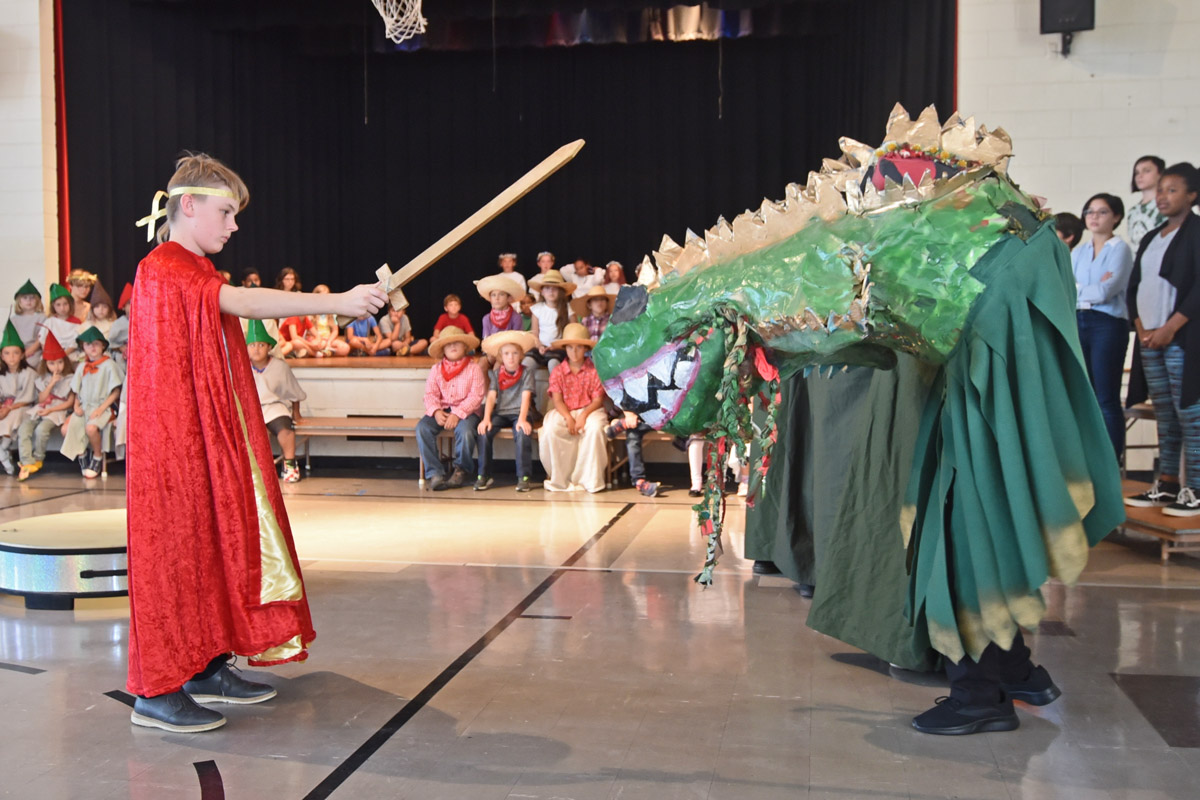Walk into Richmond Waldorf School and it won’t take long to realize that you’re in a truly unique educational environment. Maybe it’s the scent of fresh bread baking in the Early Childhood. Perhaps it’s the sound of the 4th graders practicing violin or the 1st graders stomping out a series of rhythms as they learn their multiplication tables. Or it could be the sight that becomes familiar to every Waldorf parent—joyful and eager children at the start of the school day, crowding happily at the door of the classroom as they wait to be greeted individually by their teachers.
Is Waldorf Education new?
Waldorf Education dates back over 100 years (to 1919), and with more than 1,000 schools worldwide—over 160 of which are located in North America—comprises one of the largest independent systems worldwide. While each Waldorf school is independently formed and operated, all are based on the insights, teachings, and principles of education outlined by the world renowned artist, and scientist, Rudolf Steiner. The principles of Waldorf Education evolve from an understanding of human development that address the needs of the growing child. More information about Rudolf Steiner and the history of Waldorf Education can be found here.
How is Waldorf Education different?
A Waldorf Education engages children’s imaginations and curiosity through active, hands-on learning, and seeks to cultivate creative thinking, inquiry, and a love of learning by integrating a full curriculum in math, language arts, the sciences, and foreign languages with the visual arts, drama, music, and movement.
At Richmond Waldorf School, all students experience and learn a variety of activities and skills, all of which are woven into the curriculum. Everyone participates in class plays, woodwork, and handwork, plays an instrument, sings in the choir, practices drawing and painting, and much more (all within their appropriate stages of development). This allows each child to fully develop and explore his or her own unique skills and capacities in an inclusive and encouraging environment.
Just as importantly, lessons connect meaningfully across the curriculum and build cumulatively through the grades, so that children develop a deep awareness of the forms, shapes, and patterns that weave together art and mathematics, language and history, music and games. A reverence and appreciation for the gifts of the world around us is also central to a Waldorf Education; special events, activities, and celebrations throughout the school year help ground the school community in the rhythms and cycles of the seasons and the natural world and to traditions with deep roots in human culture.
Learn more about each curriculum here:
Our Mission
Richmond Waldorf School provides a learning environment that promotes independent thinking, cultivates creativity, builds confidence, and develops practical skills. Our proven, holistic approach to education lays the foundation for a life full of meaning and purpose.
Our Vision
We embrace every opportunity to develop curious, confident, and capable individuals who can bring forth healthy change in the world.
Why does Waldorf Education work?
A Developmental Approach
At Richmond Waldorf School, we practice a developmental approach and strive to give children the right content in the right way at the right time.
We use a curriculum and methodology that takes children’s emotional and intellectual development into account so that they are truly ready for whatever they learn and do. We recognize and honor the individuality of each child and strive to allow children to develop their unique gifts and capacities at their own pace.
Living Learning
From the circle games of the Kindergarten through the rigorous academic assignments of the upper elementary grades, learning is never static, abstract, or without human values.
Rudolf Steiner, the founder of Waldorf Education, encouraged teachers to transform education into an art. This means that they must strive to create opportunities for learning that are as alive, as immediate, and as meaningful as possible. Teachers use the arts to engage their students; and students are taught how to express themselves through drawing, painting, and sculpture; speech, writing, and drama; music and movement. Students learn by listening, discussing, observing, and, most importantly, through hands-on learning and working. In the grades, every child creates an impressive body of work that expresses his or her experience in each subject.
How do we prepare our students for the future?
The world is constantly evolving and technology changes every day—knowing what career fields will be most lucrative in 10 years is anyone’s guess. What we do know is the future will need self-aware, compassionate, capable human beings who will make the world a better place. We seek to develop these capacities in our students through:
- A rigorous academic program that helps students develop clear, creative thinking
- A supportive social environment that builds students’ self-awareness and their interest in others
- An education that develops the essential humanity of each child and addresses the whole human being in body, soul, and spirit
- Daily classes in the fine arts and practical arts that teach students to express themselves and to deal with the world with confidence
Is Waldorf Education right for you and your child?
As we say and believe, you learn best through experience. Come visit us, schedule a tour, meet our staff, and/or attend an Open House.
